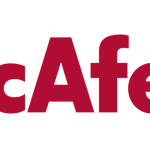- Industri: Software
- Number of terms: 9143
- Number of blossaries: 1
- Company Profile:
A feature of a program that gives an attacker access to and remote control of another computer. Programmers build this feature into applications so they can fix bugs. However, if hackers learn about backdoor access, it may pose a security risk. Backdoors, also known as trapdoors, are commonly utilized by Trojans, which can be detected by most anti-virus products and Network Intrusion Prevention Systems (NIPSs).
Industry:Internet
Executable files that contain instructions for a computer to perform an action, COM (. Com) files are for DOS-based systems and tend to run faster than EXE (. Exe) programs. Viruses often infect COM files. When the COM file executes, the virus executes as well, often loading it into memory. The Microsoft Windows operating system treats files with a COM extension the same way it treats other executable file types. Some viruses and Trojans use a filename ending in COM (e.g., http://virus. Com). Typically, these portable executable files are not real COM files.
Industry:Internet
A term used interchangeably with “out in the field” that refers to how prevalent a virus has become. When McAfee announces that a virus is “out in the wild” or “out in the field,” our assessment includes how many computers or sites have been infected, the geographic areas where the virus has been found, the complexity of the virus, and how anti-virus solutions respond.
Industry:Internet
The specific, exploitable defects to Web 2. 0 sites and applications. The flexible ability of Web 2. 0 sites to absorb new content (especially from unvetted users) combined with the vulnerabilities in browsers, protocols, and programming techniques make it easy for hackers to compromise legitimate sites. For example, invisible code could be planted within a web page to redirect viewers from a legitimate site to a malicious one.
Industry:Internet
Any computer that has full two-way access to other computers on the Internet.
Industry:Internet
A location for programs to store instructions or settings that load when the user boots an operating system. Virus authors often use the WIN. INI, SYSTEM. INI, and WININIT. INI files.
Industry:Internet
Software designed to enable a user or administrator to recover lost or forgotten passwords from accounts or data files. In the hands of an attacker, these tools offer access to confidential information and are a security and privacy threat.
Industry:Internet
This term refers to the condition of a file after a virus has inserted malicious code into it. Computer systems are infected if a virus or Trojan is installed and running on that system. Static malware, such as viruses and Trojans with entire code that is malicious, is also said to be infected. If a potentially unwanted program is installed on a system, the system is not considered infected, even though there may be other consequences.
Industry:Internet
Software that generates revenue by displaying advertisements targeted at the user. Adware earns revenue from either the vendor or the vendor’s partners. Certain types of adware have the capability to capture or transmit personal information.
Industry:Internet
Tools that redirect information bound to an IP address, domain name, or all Internet traffic to a third party.
Industry:Internet
